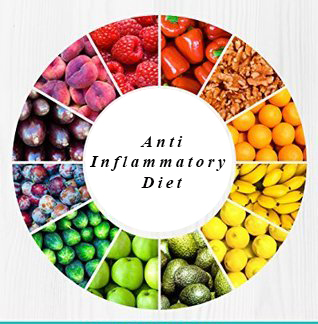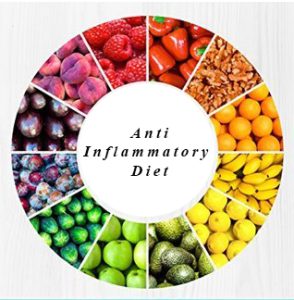Anti-Inflammatory Diet: How to Strengthen Your Body Against Diseases with Proper Nutrition
Introduction
Inflammation is a natural response our body generates in reaction to injury and infection. However, chronic inflammation can lead to serious diseases like heart disease, type 2 diabetes, and certain types of cancer. In this article, we will explore foods that have anti-inflammatory properties and can be beneficial in reducing inflammation and improving overall health.
Anti-Inflammatory Foods
- Fatty Fish
Fish such as salmon, sardines, and mackerel are rich in omega-3 fatty acids. These fats are known as anti-inflammatory agents and can effectively reduce the production of inflammatory cytokines and proteins in the body. It’s recommended to consume at least two servings of fatty fish each week. - Fruits and Vegetables
Fruits and vegetables are rich in antioxidants and fiber.- Berries: Strawberries, blueberries, and raspberries contain compounds called anthocyanins, which have high anti-inflammatory properties.
- Leafy Greens: Vegetables like spinach and kale are also rich in vitamin K and antioxidants that help reduce inflammation and strengthen immunity.
- Ginger and Turmeric: These spices have powerful anti-inflammatory properties and can help manage pain and inflammation in conditions like arthritis.
- Whole Grains
Whole grains such as brown rice, oats, and quinoa are high in fiber, which improves gut health and boosts feelings of fullness. Fiber helps to reduce overall inflammation in the body and aids in blood sugar control. - Nuts and Seeds
Eating nuts like almonds and walnuts, as well as seeds such as flaxseed and chia seeds, can contribute to higher intakes of healthy fats and omega-3s. These sources are rich in vitamin E and antioxidants that help reduce oxidative stress and inflammation. - Green Tea
Green tea contains catechins, which have anti-inflammatory and antioxidant properties. Daily consumption of green tea can improve heart health and reduce the risk of chronic diseases.
The Impact of Diet on Inflammation
Research has shown that following a Mediterranean diet, which emphasizes the consumption of more fruits, vegetables, whole grains, and healthy fats, can reduce inflammation and improve risk factors for heart disease. This type of diet is linked to weight loss, blood sugar control, and improved blood lipid profiles.
Dietary Guidelines for an Anti-Inflammatory Approach
- Variety: Aim for variety in each meal. This helps ensure a wide range of nutrients and antioxidants enter the body.
- Reduce Sugar and Refined Carbohydrates: Consuming sugar and refined carbohydrates (such as white bread and pastries) can increase inflammation. Instead, focus on whole grains.
- Use Healthy Fats: Use olive oil, avocados, and fatty fish while avoiding saturated and trans fats.
- Focus on Plant-Based Proteins: Legumes, nuts, and seeds are excellent sources of plant-based proteins that help reduce inflammation.
Conclusion
Proper nutrition and selecting anti-inflammatory foods are among the best ways to maintain health and prevent diseases. By incorporating these foods into your daily diet, you can help sustain your well-being and enhance your quality of life. Small changes in dietary habits can have significant impacts on our overall health.
References
- Calder, P. C. (2017). Omega-3 fatty acids and inflammatory processes: from molecules to man. Biochimie, 141, 206-216.
- Esposito, K., & Giugliano, D. (2014). Diet and inflammation: a review of the evidence. Journal of Nutrition, 143(6), 877-882.
- Lopez-Garcia, E., et al. (2004). Mediterranean diet and inflammation: The HELENA Study. Patología, 15(1), 11-22.





